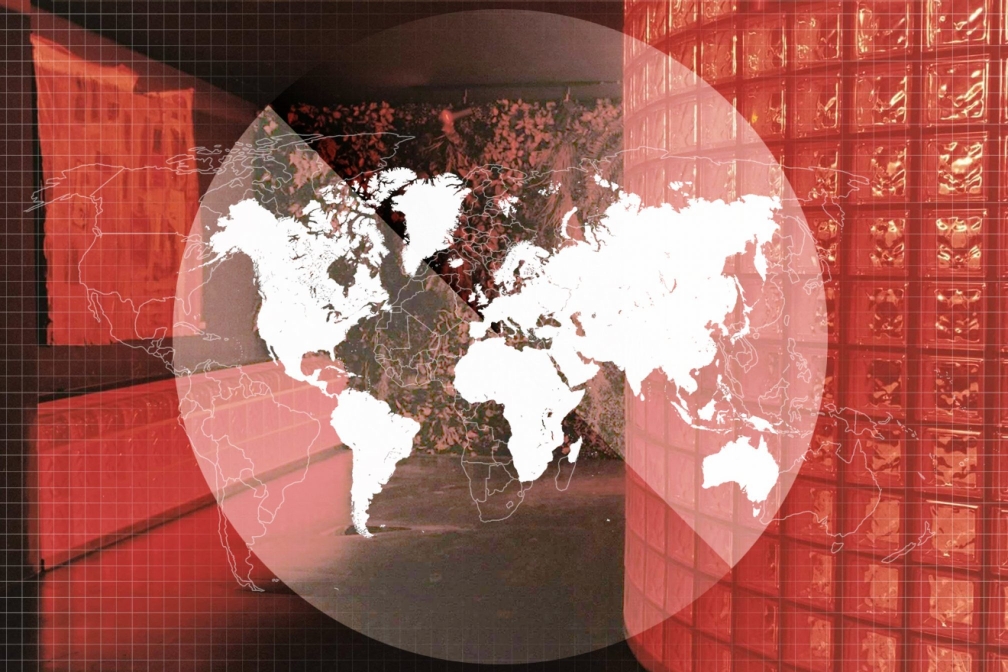 Features
Features
We asked 14 DJs to recommend all the under-the-radar clubs you need to visit around the world
Almost half of them are in Asia
Partying abroad is a right of passage for every raver these days. That’s thanks to cheap air fare, the endless search for undiscovered clubs far from the mad-for-it crowds and a buzzing international club scene where no territory is untouched by the stomp of electronic music.
And prior to hitting Skyscanner, there are the pilgrimages to clubs in cities outside of your hometown. Those journeys to the big smoke, tipsy on tins and nervous excitement, and back again, when Shazam IDs soundtrack a happy comedown, a mission successfully completed.
So it’s the New Year and you’re looking for new places to dance your ass off. We asked some of our favourite DJs to recommend clubs off the beaten path. Happy exploring.
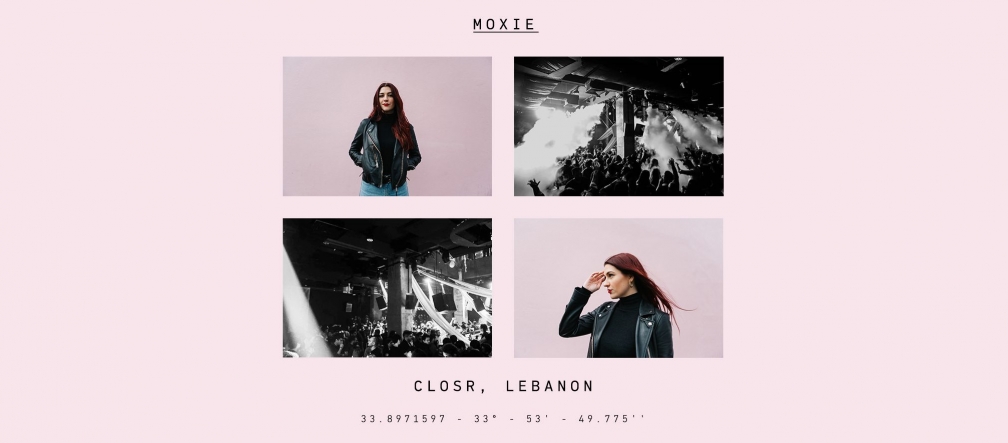
CLOSR opened in Lebanon’s Karantina industrial area late last year and looks like it might be a classic in the making: there’s two floors and a rooftop, a seldom seen but utterly essential chill out area, a canteen for those essential party pit stops and colourful stained glass above the DJ booth. This gift from the club gods has art direction from local DJ and CLOSR resident Ronin, with bookings looking to bring in overseas as well as Beirut-born talent. This one comes tipped by Moxie...
Moxie: “I played here for New Year’s Eve and had no idea what to expect. But from the moment I walked in, I felt a good vibe. The space itself is a large rectangular shape with the booth on immediate view as you enter, taking up the entire back wall. Big concrete pillars frame the room, reminiscent to Amsterdam’s Trouw. Everything was considered, especially the lights which were darkened to reflect the styles of music played, moving from disco, house to rolling techno. Towards the end of the night the room was practically black. Not to mention the sound which was not only on-point from the DJs perspective, but also for the raver. For me these things make the ultimate difference. The club’s only been open since November but already its bookings reflect the more underground sound with Ryan Elliot, Ben UFO, Secretsundaze and DVS1 all playing since it opened. If you wanna go to a big club with an intimate feel, this is the spot for you.”
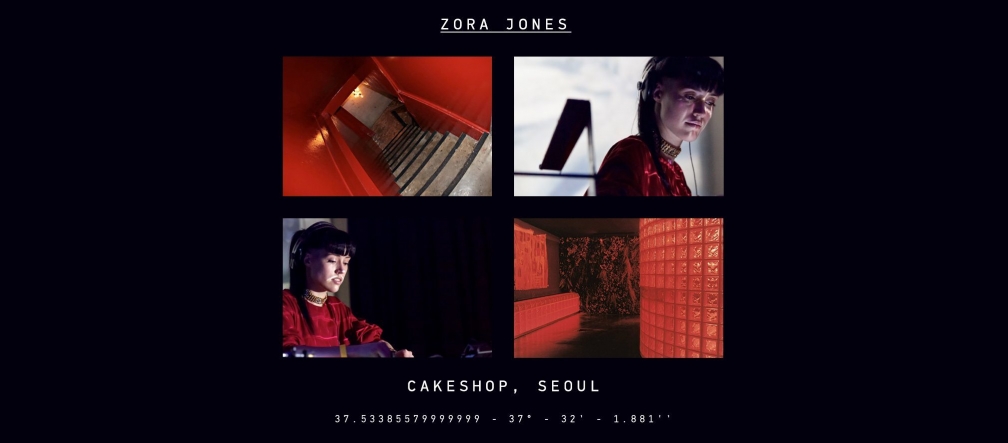
Dark0, Teki Latex, HITMAKERCHINX, Sega Bodega, Yaeji, Actress, DJ Firmeza. If a DJ is on the bleeding-edge of dance music, they’ll likely be getting a call from Cakeshop, an intimate, sweat-soaked venue in Seoul’s Itaewon neighbourhood. It’s famed for the iconic neon “Cakeshop” sign that hangs behind the booth in the basement, its up-for-it crowd and personal vibe (Time Out Seoul complained that “the only downside is that it's a bit small and the ceiling is low, so it can feel a bit cramped” but that sounds perfect to us.) Low-end pioneer Zora Jones recently had an incendiary experience there...
Zora Jones: “My choice would be Cakeshop in Seoul, South Korea. It started as a small basement space but recently expanded into a three story building, including an exhibition space, second dancefloor and terrace. The basement is still my favourite though: it’s a dark, 200-capacity room with a great soundsystem and an open-minded and explosive crowd. What I most love about Cakeshop is the hand-picked line-ups – you can feel that the owners have a great love for the music they bring to the club, which is really noticeable on the dancefloor. I had one of my best shows there last year!”
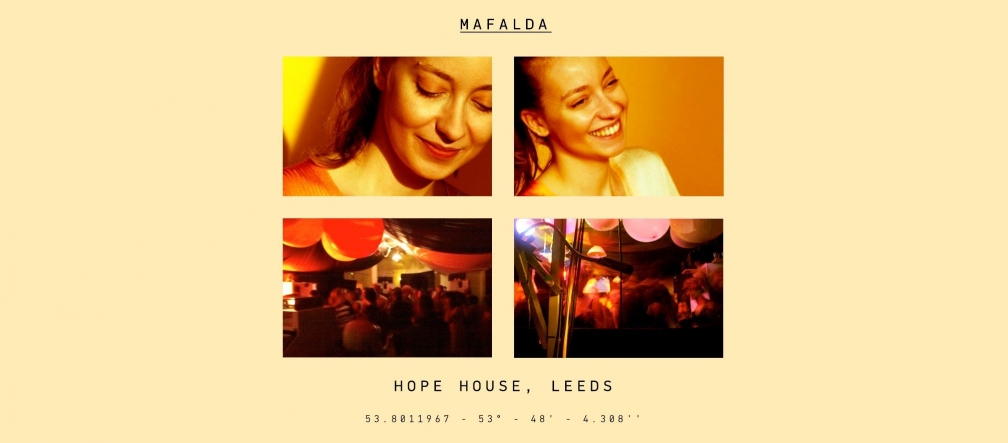
Cosmic Slop is a DIY party in the purest sense: it takes place in an art gallery in a grade II listed building, its proceeds go to a youth charity, its soundsystem was built by one of its residents and line-ups are never announced. This is partying as it should be, made for the people and run by the people. If you needed an excuse to check out Leeds, this is it, as Melodies International co-boss Mafalda explains...
Mafalda: “My favourite ‘club’ isn't a club but a gallery; it's in a building in Mabgate, in Leeds, called Hope House. It’s home to Music And Arts Production (a charity that teaches arts to teenagers) and MAP is partially funded by the Cosmic Slop party which happens every month in the gallery. It's not a typical club, as it isn't a typical party, but it deserves a mention and visit because of how special it is: the custom built soundsystem is unbelievable, as is Tom Smith (Cosmic Tom) who runs Cosmic Slop and MAP and built the soundsystem itself. The crowd at the party is young and open to anything – and anything goes – and the DJs joining founders Tom and Mike Greenwell are never announced. Everyone comes with the best energy, there are big colourful balloons in the ceiling (and tweeters too) and it supports the extremely important work of MAP, so it's my favourite ‘club’.”
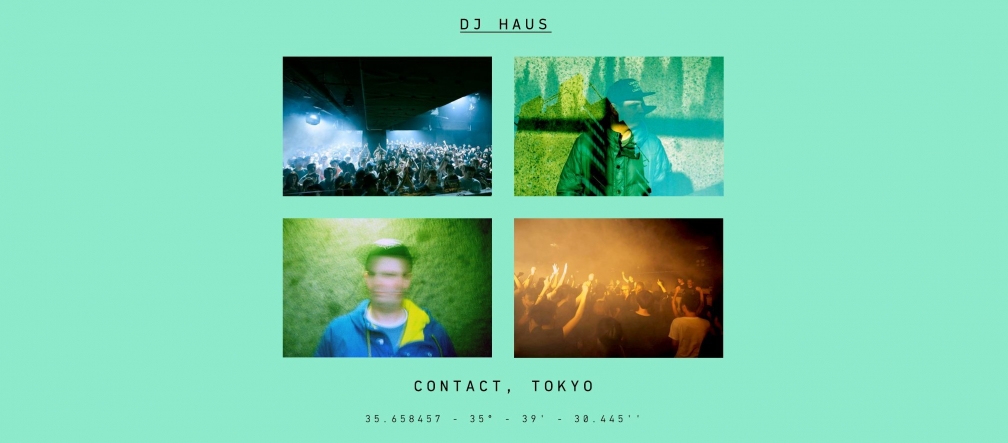
We recently visited Contact early on a Tuesday night and were treated to aquatic dub techno and blasts of harsh sandpaper noise – all before midnight, just round the corner from one of the busiest parts of Tokyo. Situating such a forward-thinking club in a major tourist destination would be unthinkable in other cities, but somehow Contact makes it work. Entrance to the subterranean venue is via an elevator and once you’re below ground level, you become enveloped in dusky industrial chic and the sounds of Japan and Europe’s best DJs. It’s what we’ve come to expect from Daizo Murata, the legendary club operator who’s been running Tokyo’s best dancefloors since the late 80s. DJ Haus is just one selector who rates the ethos...
DJ Haus: “Contact is a new space opened beneath a car park in downtown Shibuya, Tokyo. The club is really pushing local talent and is also bringing over some of the most open-minded DJs from Europe!”
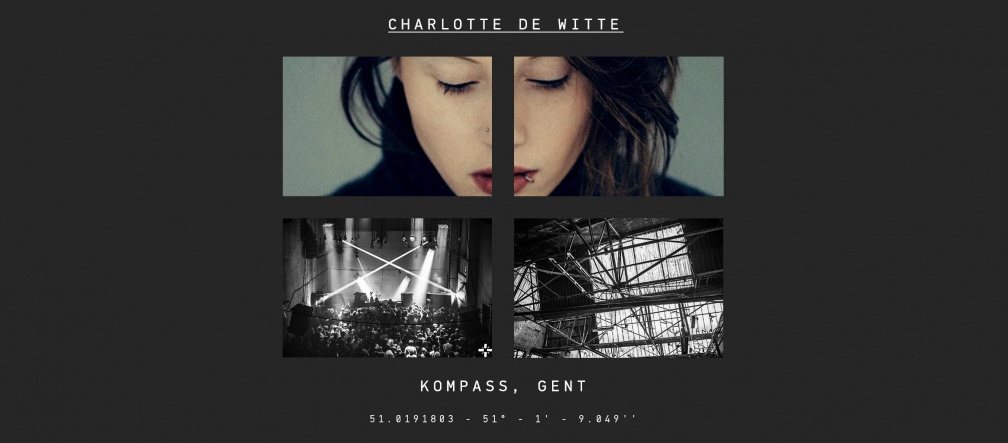
Ghent has earned its place in dance music history thanks to the Dewaele brothers, but it’s yet to become well known on the techno tourism circuit. That could well change with the advent of Kompass, a stonking techno venue where “egos are left in the cloakroom”. Charlotte de Witte hosts her KNTXT concept there, so here’s her take on it…
Charlotte de Witte: “One of the clubs that definitely deserves to be highlighted is Kompass in my hometown, Ghent. Ghent’s nightlife has always been vibrant but ever since Kompass opened its door two years ago, the city became even more attractive for Belgian and international clubbers. It’s located in the industrial area and is the perfect venue for underground music: it’s big, raw and slightly dirty. That warehouse screams techno. The owners are lovely people who’re not scared of thinking outside the box. They’re creative with their line-ups and bring the perfect mix of well-known, established DJs and up-and-comers. I was playing there a couple of weeks ago for my concept KNTXT and experienced an unbelievable energy. Having a true Ghentian soul, I’m grateful for Kompass’ existence. It adds so much value to a beautiful city.”
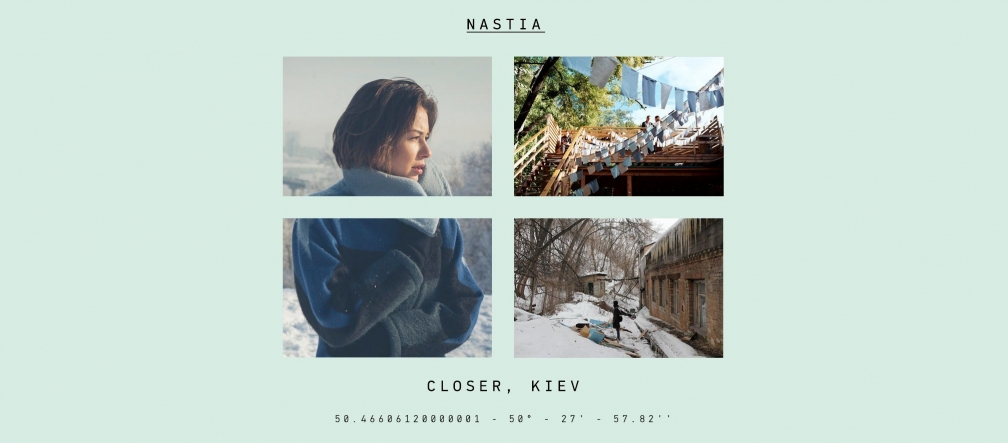
Closer is an art centre in Kiev’s Podil district and holds dance music up alongside the jazz gigs, exhibitions and arts lectures that it also hosts. It’s another example of how a club can be incorporated into a multi-faced cultural destination and community hub, and it holds a very special place in Nastia’s heart, as it’s where she holds her epic 36-hour party Strichka…
Nastia: “If you are really into underground music and want to understand the Ukrainian scene, I would absolutely recommend you visit Closer in Kiev. It’s where we hold my 36-hour festival every May around my birthday – it’s called Strichka, which means “ribbon” in Ukrainian, as the club is based in a former ribbon factory. It has dancefloors inside the industrial space, as well as a veranda where summer parties take place with a beautiful view of the woods and the mountains.
The club’s programming is a good mixture of respected international talent – the Zenker Brothers, Jane Fitz, Delano Smith, DJ Sotofett and Matthew Jonson are playing there soon – and the best the Ukrainian scene has to offer, like Yate, Bambu and cofounder Timur Basha. On Thursdays they have jazz musicians, a night I love to check out when I have time. They also have an art gallery showcasing international and local talents, and a clothes shop and record store. By now, I’ve travelled the world and understand how special this venue and its team is.”
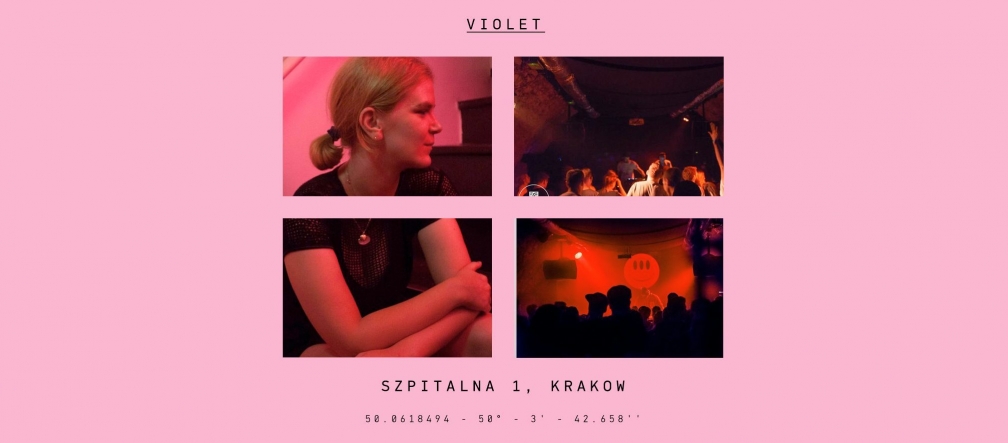
Krakow’s another place that isn’t really known as an electronic music destination, despite being home to a small but buzzing scene based around intimate cellar clubs, a handful of record shops and the phenomenal Unsound festival. During this year’s edition, Nina Kraviz and Mumdance went b2b at Szpitalna 1, drawing bleary-eyed dancers down to one of its cavernous subterranean dancefloors for a charged early afternoon session. It was quite the coup for the club, which prides itself on a leftfield booking policy that welcomes the likes of Errorsmith, Octo Octa and Charlotte Bendiks. There’s also open deck and open mic nights and on-point music playing somewhere in the venue most days/evenings a week – including frazzled Sunday sessions in Szpitalna 1’s street-level bar, where local diggers play the most eccentric cuts from their record collections. Rádio Quântica co-founder and Naive label boss Violet represents…
Violet: “Playing at Szpitalna1 was one of my highlights of 2017. The staff and promoter crew were really vibey and friendly and the club had an amazing layout. The room I played was like a tunnel, a proper rave cave with some of the best sounding systems I’ve witnessed while touring – entering the room actually gave me shivers. The room next door, which I think is called the ‘weird room’, had a super chill and particular atmosphere to it, with a DJ playing italo gems. I also really enjoyed the backstage area, with stone walls and seats in a semi-circle, really good for late night talks and relaxing before my set. Needless to say the vodka in Poland is insanely good and much better than any I’d ever had and I had a couple of super-fresh vodka based cocktails. The Crowd was really open and enthusiastic, co-created my set with me with their energy. And also important to add: I love the fact the club runs queer parties and has an LGBT flag over the main bar.”
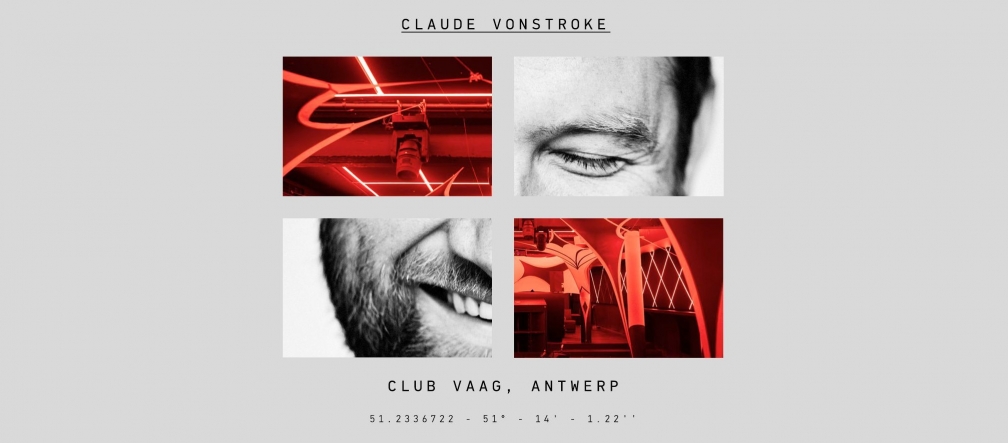
“Love, magic, play and fun” – what every night out should revolve around, right? Well, that’s the MO of Club Vaag, a basement venue in a building that also houses two other clubs in Antwerp. Opened by crews who have been running parties in the area for a hot minute, it focuses on underground dance music as well as a not-too-serious vibe (you can grab fancy dress from the venue if you feel like completely flipping your outfit!) Vaag gets Dirtybird main man Claude VonStroke’s approval...
Claude VonStroke: “Club Vaag is really cool and has a great following. I was surprised when I went there because of how great it was and how much the people were getting after it in there!”
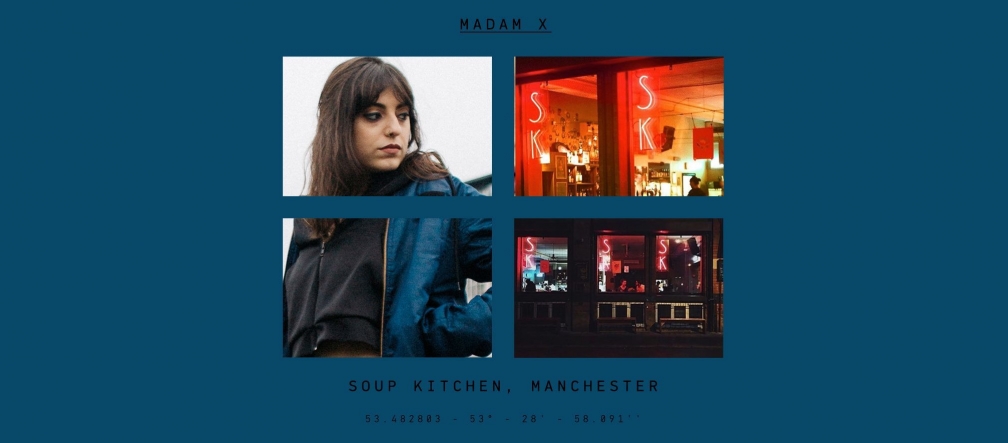
If you didn’t know that Manchester’s popping off, then you’ve been sleeping. At the heart of the energy is Soup Kitchen, a family-friendly cafe come night club in the Northern Quarter that takes a holistic approach to being a venue. It’s a community hub, providing a meeting place for people to bond over food, drink and dancing. It hosts gigs but has become renowned in our world for consistently pushing the best new electronic music going. Madam X has been a regular there for a minute...
Madam X: “Banging food joint by day and vibrant night club in the evening, Soup Kitchen's been one of Manchester's most reliable spaces for a number of years. From 6 months to a year-long waiting list to book anything in there, it's one of the most sought-after spaces for credible, underground club nights. The programming is always on-point, the soundsystem is weighty and the staff are lovely. It’s home to nights like Swing Ting, Chow Down, Zutekh and Moxie's On Loop. Best of all, it's unpretentious, cozy, intimate and always full of good vibes.”
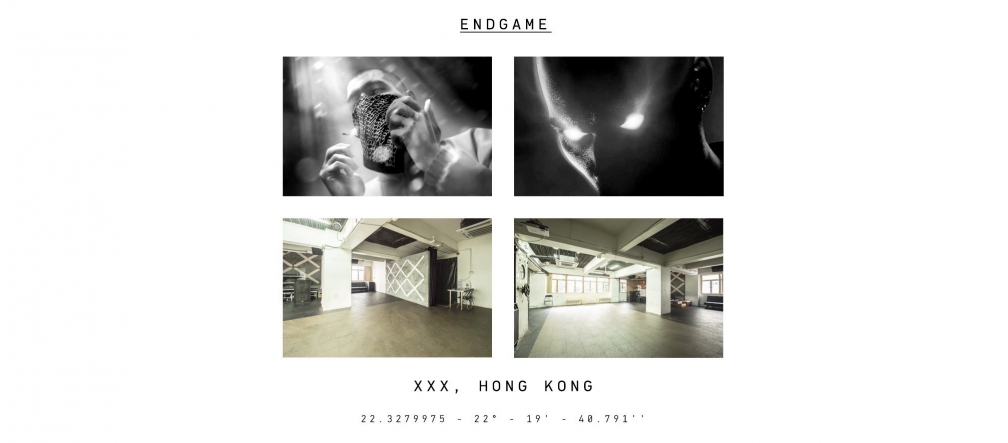
XXX calls itself “Hong Kong’s truest underground arts space” and, after being chased around the city by gentrification and rising rents, is currently based in the emerging Tai Kok Tsui arts district. Apart from the area being cheaper, founder Cassady Winston moved the club there to draw revellers to an overlooked but no less fervent part of town. Predictably there’s an “industrial” vibe as wel as a chill ethos – it’s BYOB and there’s movie nights and ping pong tournaments to check out when the club isn’t going full steam ahead. Endgame put us onto XXX...
Endgame: “It’s one of my favourite clubs anywhere. It has a chaotic atmosphere and a dystopian feel to it. It’s located on the second floor of a decaying old building, it has a huge warehouse-style soundsystem and minimal lighting, so you can really lose yourself. It’s grimy and loud, as clubs should be and the programing also represents a lot of local talent which is super inspiring. I really respect how difficult it can be putting on nights there, because there is always a high risk of the club getting shut down.”
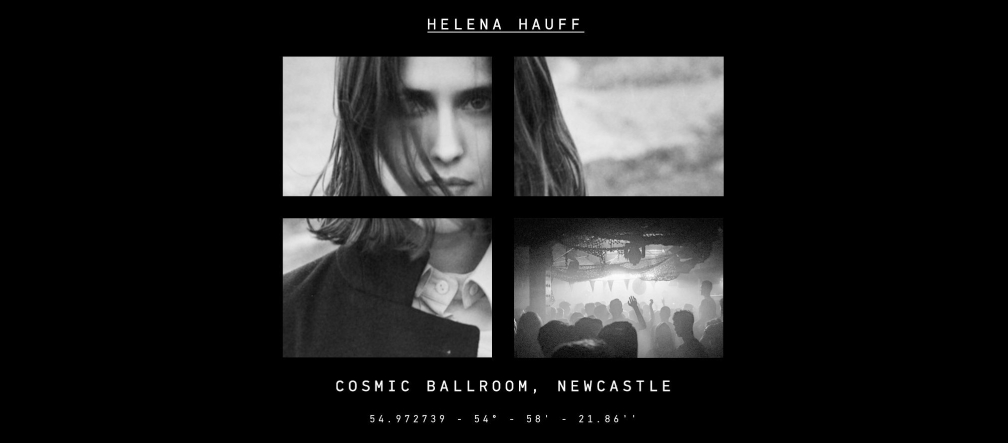
Clubs in the UK have had a tough time thanks to gentrification, redevelopment, archaic licensing laws, politicians who don’t understand how important electronic music is to pop culture and other pitfalls that make running a venue so difficult. So it’s equally surprising and heartwarming to know that the site of Cosmic Ballroomhas been used as a space for dancing since 1974, when the Bird Cage casino was revamped into The Stage Door nightclub. It became Cosmic Ballroom in 2006, continuing to draw revellers to Newcastle’s China Town for long nights soundtracked by locals and visiting DJs alike. Perhaps it’s the long history of dancing inherent to the place that makes it a favourite of so many selectors or the fact that the Toon crew really do know how to party – whatever the case, you’ll find the likes of Daniel Avery, Robert Hood and Objekt queing up to play. Here’s Helena Hauff, who doesn’t need too many words to express how good Cosmic Ballroom gets...
Helena Hauff: “Cosmic Ballroom has a great vibe and the crowd gets really rowdy, which I love.”
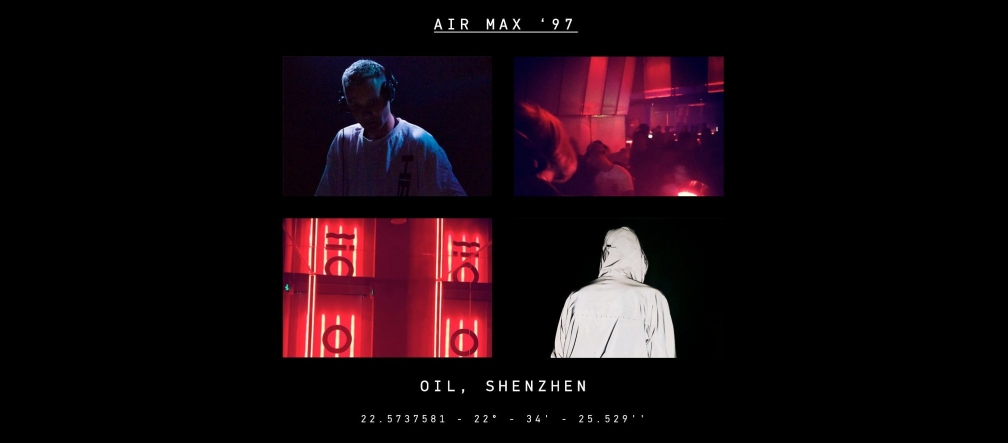
OIL is another venue bringing forward-thinking artists to China (Jacques Greene, Nightwave, DJ Firmeza). It opened in 2017 and boasts a cocktail bar and club space, both with the kind of stylish, futuristic design that you’d expect to find hidden in the depths of a major metropolis like Shenzhen. You’ll want to come for the custom cocktails, stay for the cute atmosphere and then wile out to the sick line-ups. Air Max ‘97 is a convert...
Air Max ‘97: “This place has really got it right: careful planning for two years to get an optimum location, interior design by Kim Laughton and a seriously weighty system for a small club. OIL is part of an exciting wave of underground activity in China right now and I can’t wait to play there again.”
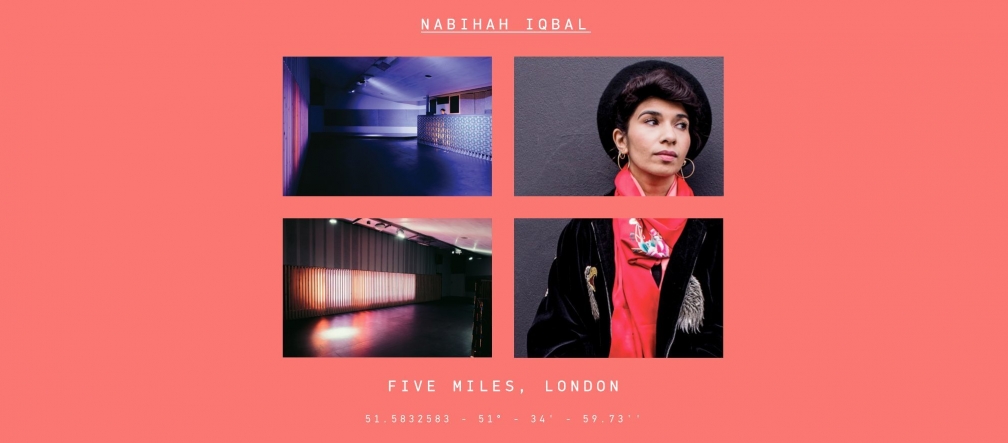
For a while there things looked a bit bleak for London clubbing. But a flurry of new openings, including Five Miles, means the capital is back to full fitness. This small, dim-lit club space is located away from the usual nightlife hotspots in an unassuming part of Seven Sisters. Easy to get to thanks to the Tube and Night Tube, it offers a craft beer bar (with cocktails on tap) and an uncompromised dancefloor. That is, if you want to get your head down and lose yourself in the dark, you can. Nabihah Iqbal has been catching a vibe...
Nabihah Iqbal: “I love the soundsystem in Five Miles and I also appreciate how the owners have separated the club room from the bar – it means that when you go in there, you are there to dance and that's it! No nonsense.”
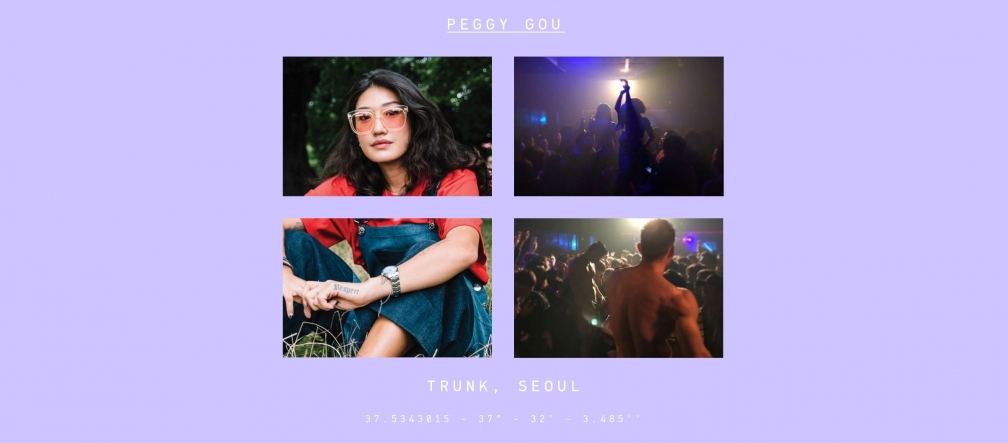
Seoul is the place to be. Cakeshop (see above), Contra and now Trunk are all proving that the capital of South Korea is a legit dance music hotspot. Expect neon lights, drag shows and DJ sets in a hot ‘n’ heady basement in the city’s gay district. It hasn’t been open long but already it’s a favourite of Peggy Gou’s…
Peggy Gou: “Two of my friends just opened Trunk less than a year ago. It's in Itaewon in Seoul (kinda like Shoreditch in London). It's a place where everyone can come and enjoy themselves with total freedom - my transgender friends always do amazing shows with different themes every night. Last time I played in Seoul we all went back to Trunk for an afterparty and I asked the DJ if I could carry on - it's that kinda club where I feel at home too!”

Many of the clubs on this list make a point of booking overseas talent while also nurturing their respective local scenes. But Lärm began with the direct intention of inviting Hungarian artists to play to a dancefloor full of Hungarian people. Founder Csete Manek Gábor took something of a bloody-minded approach to opening the place in 2014, understandable given that he felt that Budapest was missing a proper techno club where the city’s residents could congregate away from the tourist crowds. While visitors have found out about the club (and are of course welcomed) and bookings now span international artists, much of Gábor’s uncompromising vision remains and makes Lärm what it is. He designed it after receiving recommendations on how to create a perfect club space from his DJ friends and has also installed a strict no cameras or bright lights rule. There’s also a lot of exposed concrete for that true techno feeling. Lärm is the second of DJ Haus’ tips for us...
DJ Haus: “Lärm in Budapest is situated in a large clubbing complex and caters for underground house and techno. They've booked everyone from DJ Boring to X - Coast and DJ Seinfeld recently and are pushing more experimental sounds to Budapest’s club bees.”


